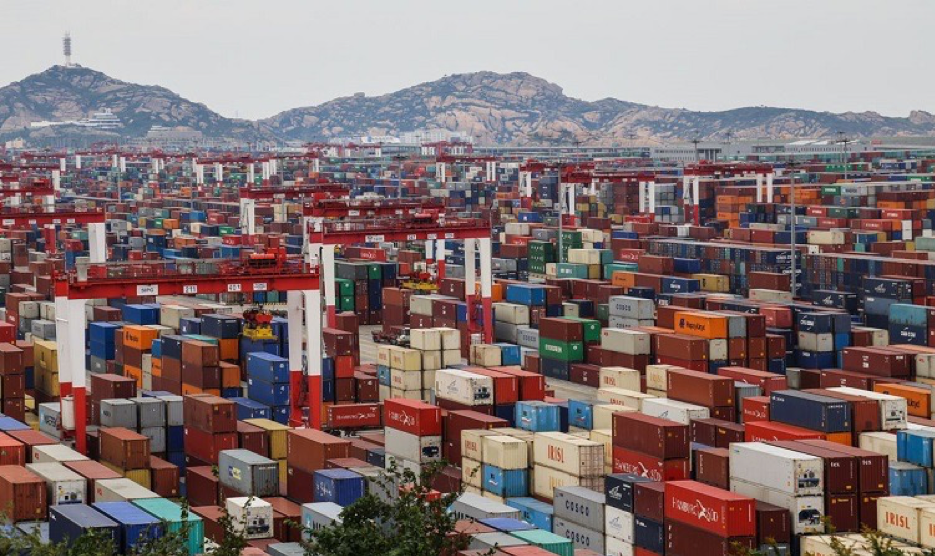Elizabeth Lord is an An Wang Postdoctoral Fellow at Harvard’s Fairbank Center for Chinese Studies. She received her Ph.D. in human geography from the University of Toronto in 2017. Her research seeks to understand the relationship between China’s changing environment and the production of environmental knowledge.

Everyone seems to agree: China is in the midst of an environmental crisis. This crisis takes the form of ‘airpocalypses’, toxic soils, ‘cancer villages,’ animal extinctions, and contaminated water, among other dystopian facts. These problems are real; they inflict harm on the population and transform the landscape in irreversible ways.
But what is a crisis, and what work is performed when we label China’s environmental situation a crisis? And why is this crisis Chinese? In our environmentally precarious era, the language we use to talk about another country’s environment is more important than ever. More pointedly, environmental issues may serve as a platform to revive orientalist views and fuel new iterations of anti-China sentiment.
Western observers have long seen crises in China. For many journalists and scholars, China is said to be in the thick of a moral crisis, a food crisis, a food safety crisis, a demographic and aging crisis, a debt crisis, and an education crisis, not to mention a variety of looming economic and political crises. As scholars like Paul Cohen have shown, seeing crises in China is a time-honored trope in Western scholarship; it appears that environmental questions are serving as a new platform to voice these.

So what is at stake in the language of ‘crisis’?
The language of crisis is rooted in development discourse. It implies a global hierarchy where more privileged countries diagnose others as ‘sick’. The medical analogy has etymological roots: the Greek word krisis (meaning ‘decision’) was used in medical Latin to describe the decisive moment when a seriously ill patient would either recover or die. It points to the crossroads where vital decisions should be made. The language around China’s environmental crisis similarly points to an ‘illness’ to be cured.
But the language of crisis not only pathologizes China; it also implies the existence of a ‘normal’ environmental situation, one that is located outside Chinese borders. The crisis narrative thus turns China into an environmental ‘other’ and suggests that Western countries are free of such ills.
Whose crisis is it, really?
Reforms initiated in the “opening up” of the late 1970s established an economic system predicated on profit at all costs. Weak environmental (and labor) regulations provided a highly profitable business environment, which attracted foreign investment. China’s admission to the World Trade Organization (WTO) in 2001 lowered trade barriers and further boosted China’s ability to produce for the international market. As a result, a substantial portion of China’s pollution today is fueled by consumption abroad.
While this is widely known, our most common and authoritative modes of environmental accounting still rely on calculating pollution at the site of production as opposed to consumption. This particular way of calculating pollution hurts China. According to these official accounting systems — including the one used by the United Nations’ Intergovernmental Panel on Climate Change — whatever production takes place within a nation’s borders is its own environmental responsibility, regardless of where products are consumed.

Scholars have shown that between 20% and 30% of China’s total emissions result from the production of goods exported to the US, Japan, the EU, and other countries. Yet these countries bear no official environmental responsibility for the environmental harm done on Chinese territory. According to official accounting systems, China is deemed the sole party ‘guilty’ of the pollution generated for international consumption. What’s more, following its recent ban on importing international trash, China is also being pressured to continue accepting American waste, allegedly in accordance to WTO regulations.

How we allocate environmental responsibility and choose to account for pollution at the international level is an inherently political question; this means it can be changed. The shift to a consumption-based accounting system has not taken place (even though many support it) partly because developed countries are unwilling to bear the true environmental weight of their consumption. Until a paradigm (or power) shift happens, China will continue to bear the harmful environmental and health effects of intensive production for exports; it will also continue to be subjected to the stigma of being an ‘international’ polluter.
Meanwhile, the skies in developed countries will remain comparatively clean, as will their environmental scorecards.
In sum, using the language of crisis contributes to environmental antagonism against China precisely at a time when we need more reflexive and inclusive environmental analyses. Moreover, the recurring question ‘Is China capable of dealing with its environmental crisis?’ takes China as a closed system, implies a crisis of governance, and erases the fact that many of the country’s environmental problems are rooted outside its borders. Of course, China is experiencing life-threatening environmental problems, but if it is a crisis, it is our crisis too.
Elizabeth Lord is a 2017–2018 An Wang Postdoctoral Fellow at Harvard’s Fairbank Center for Chinese Studies. From 2018–2020 she will be a Postdoctoral Fellow at the Institute at Brown for Environment and Society, where she will teach on China’s environment and political ecology and conduct research on environmental protection policies, rural-urban inequalities, and the politics of environmental research in contemporary China.


